Premium Only Content

Exhibit A: Federal Civil Rights Lawsuit, South Dist Court of Ohio
Please pick up THE TRIFOLD on INDESTRUCTIBLE PAPER on DeleteLawZ dot com for $25.00. We ship it from Los Angeles. OR -- get the Trifold you PRINT AT HOME for free by Put "FreeTrifold" (When you go to Purchase the $15 Digital Download, that's WHEN you put the ONE WORD, FreeTrifold in and then you print it at home)
DeleteLawZ dot com
Thanks,
Chille
@ChilleDeCastro PayPal
@Chille-DeCastro Venmo
$ChilleDeCastro Cashapp
You have a right to protest.
The most significant limit on your right to protest is in the language of the First Amendment, which prohibits government interference with the right to assemble "peaceably." The U.S. Supreme Court long ago recognized the government's right to stop demonstrations that present a "clear and present danger" of violence or another "immediate threat to public safety, peace, or order" (Cantwell v. Connecticut, 310 U.S. 296 (1940)).
Without this kind of immediate threat, courts have generally held that police don't have the right to clear out a political demonstration just because they fear possible disorder or because protesters are "raucous," make the cops or other people mad, or slow traffic. (See, for example, Cox v. Louisiana, 379 U.S. 536 (1965) and Jones v. Parmley, 465 F.3d 46 (2nd Cir. 2006).)
The upshot of these standards set out by the courts: Law enforcement may break up violent protests and arrest participants who engage in violence or property destruction. You shouldn't be arrested just because you were present at a demonstration where other people violated the law, unless you directly incited them to violence. Nor should officers arrest you simply for yelling or cursing at them.
-
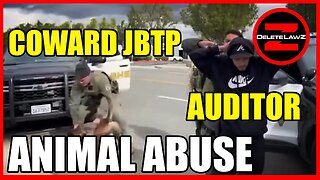 10:16
10:16
Delete Lawz
1 year agoK9 DOGS HAVE TO STOP!
7314 -
 3:05:19
3:05:19
PandaSub2000
11 hours agoDuckTales Remastered | ULTRA BEST AT GAMES (Original Live Version)
23.2K -
 LIVE
LIVE
SpartakusLIVE
6 hours agoShadow BANNED Day 1 of NEW Season || Has WZ been FIXED?!?!
941 watching -
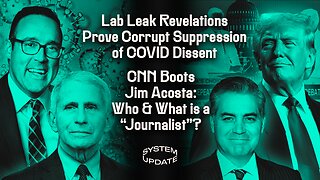 1:19:42
1:19:42
Glenn Greenwald
7 hours agoLab Leak Revelations Prove Corrupt Suppression of COVID Dissent; CNN Boots Jim Acosta: Who & What is a "Journalist"? | SYSTEM UPDATE #398
69K88 -
 1:11:00
1:11:00
Donald Trump Jr.
11 hours agoFirst White House Press Briefing, Plus Behind the Scenes on Capitol Hill w/ Rep Vince Fong & Sen Eric Schmitt | TRIGGERED Ep.211
188K161 -
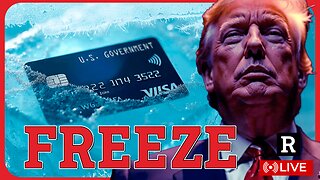 1:45:52
1:45:52
Redacted News
9 hours agoBOMBSHELL! Trump about to announce largest spending FREEZE in American history, deep state in PANIC
193K359 -
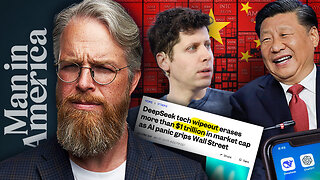 1:05:23
1:05:23
Man in America
12 hours agoDeepSeek & the AI War to Dominate the New World Order w/ Mike Adams
42.1K12 -
 LIVE
LIVE
DLDAfterDark
3 hours ago $1.04 earnedDLD Live! Are They Planning an Attack?? The "cute winter boots" Trend & What it Means!
276 watching -
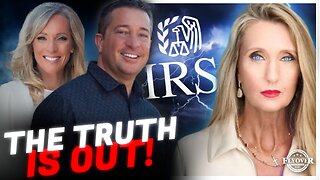 55:26
55:26
Flyover Conservatives
23 hours agoFrom Conspiracy Theory to Proven Fact: Breaking Free from the American Corporation - Ann Vandersteel | FOC Show
33.8K5 -
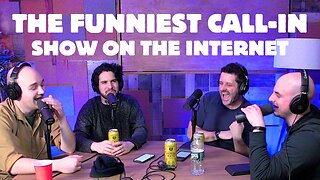 1:48:32
1:48:32
Danny Polishchuk
9 hours agoThe Funniest Call In Show On Earth - Live From New York City's Best Comedy Club
35.3K